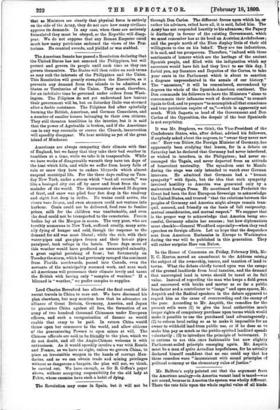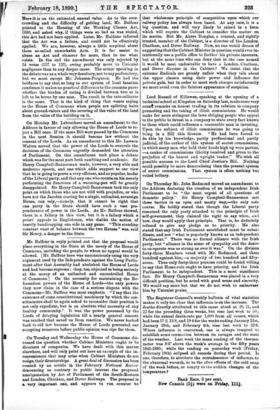Mr. Balfonr's reply pointed out that the argument from the
American analogy—in America vacant land is taxed—was not sound, because in America the system was wholly different. There the rate falls upon the whole capital value of all kinds.
Here it is on the estimated annual value. - As - to the over- crowding and the difficulty of getting land, Mr. Balfour pointed to the Housing of the Working Classes Act, 1800, and asked why, if things were so bad as was stated, this Act had not been applied. Later, Mr. Haldane inferred that the Act was a failure, and could not be effectively applied. We are, however, always a little sceptical about these so-called unworkable Acts. It is far easier to abuse an Act and clamour for more, than to use what exists. In the end the amendment was only rejected by 34 votes (157 to 123), owing probably more to Unionist negligence than to any deeper cause. The minor speaking in the debate was as a whole very desultory, not to say perfunctory, but we must except Mr. Johnson-Ferguson. He had the boldness to say that so long as our system of local taxation continues it makes no practical difference to the common purse whether the burden of rating is divided between two or is left to be borne by one man. The result to the rate-collector is the same. That is the kind of thing that wants saying to the House of Commons when people are splitting hairs about ground-values and the severing of the value of the land from the value of the building on it.







































 Previous page
Previous page